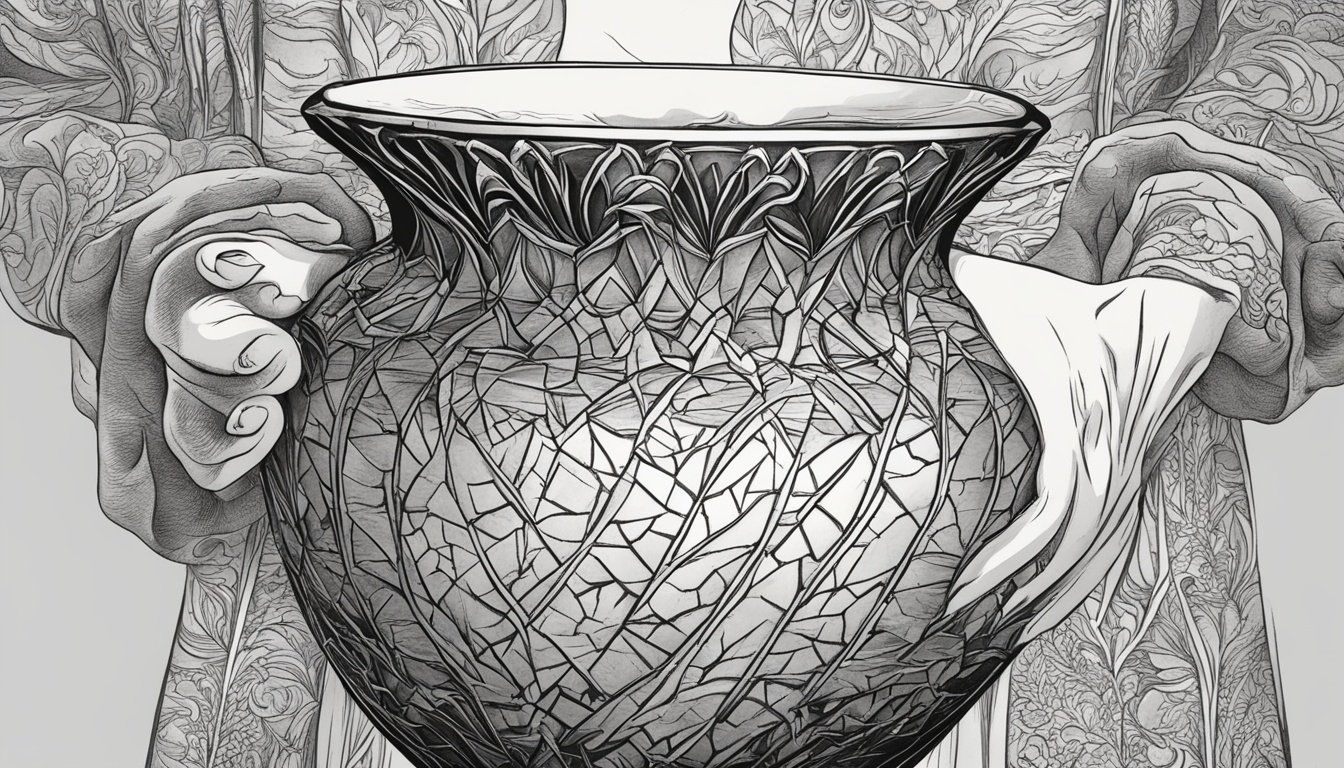Embracing Imperfection: Finding Beauty in Flaws and Uniqueness
“I think perfection is ugly. Somewhere in the things humans make, I want to see scars, failure, disorder, distortion.” – Yohji Yamamoto
Many times, our society values perfection more than anything. It urges us to aim for perfect bodies, perfect performance, and perfect lives. But, what if we changed how we see things? What if we found beauty in our imperfections and what makes us unique?
Embracing imperfection isn’t about giving up on getting better. It’s about realizing that we’re not perfect and finding beauty in that. This way, we make room for personal improvement and self-love. Letting go of the need to be perfect opens doors to new chances and bettering ourselves.
In this article, we’ll look into the advantages of accepting our imperfections. We’ll talk about how harmful perfectionism can be and why growing is more important. We’ll see how being mindful can help, and we’ll learn ways to accept our vulnerabilities.
Are you ready to start a journey towards understanding and loving yourself? Let’s get started.
Key Takeaways:
- Embracing imperfection allows for growth and self-acceptance.
- Perfectionism can be destructive, leading to dissatisfaction and anxiety.
- A growth mindset helps us embrace challenges and learn from our mistakes.
- Mindfulness practice cultivates self-compassion and acceptance.
- Embracing our flaws and uniqueness leads to a positive self-image.
The Destructive Nature of Perfectionism
Perfectionism is often seen as a good thing. But it can hurt us and slow our growth. Striving for perfect can lead to always feeling dissatisfied and anxious.
Having high goals is good, but setting impossible expectations is not. It makes us stressed and feel like we always fail. It stops us from trying new things because we’re scared to not do them perfectly.
Perfectionism makes it hard for us to be ourselves. We worry so much about what others think that we don’t let them see the real us. This keeps us from making true friendships and feeling close to others.
Also, it can stop us from growing personally. We only care about the final outcome, not the journey. This makes us afraid of any challenge that might show our weaknesses.
Beating perfectionism is key to improving ourselves. It means being okay with our faults and understanding that it’s natural to make mistakes.
Changing how we see things can make a big difference. Understanding that it’s okay to not be perfect frees us. It gives us the chance to connect with others deeply and to not see failure as the end.
Next, we’ll look at ways to fight perfectionism and how embracing who we truly are is vital for our growth.
The Negative Effects of Perfectionism
- Increased stress levels
- Feelings of failure and not being enough
- Fear of trying new things
- Stopping us from forming close relationships
- Preventing us from changing and growing
Seeing the harm perfectionism does is the first step to getting better. It helps us be more open to change and better at dealing with challenges.
Shifting to a Growth Mindset
Changing to a growth mindset is a big step for us. We stop thinking about our abilities as fixed. Instead, we believe we can improve these traits with work and learning. This change in thinking is key not just for us getting better, but for us to see our imperfections in a positive light.
With a growth mindset, problems and mistakes are chances to get better. We don’t let them bring us down. We use them to move forward. We tackle life’s challenges with a sense of inquiry and toughness. We understand that with effort, we can grow and overcome any hurdle.
Thinking in this way opens up a world of new chances. We are more ready to try new and difficult things. Even if we miss the mark at first, we know we can gain the skills we need. This way of thinking fills us with hope and joy as we strive to be our best.
Embracing imperfection through a growth mindset is not just about personal development; it also has a profound impact on our relationships and interactions with others. When we approach our interactions with a growth mindset, we are open to learning from different perspectives, accepting feedback, and continuously improving our communication and connection with others.
“The only limit to our realization of tomorrow will be our doubts of today.” – Franklin D. Roosevelt
To truly adopt a growth mindset, we have to work at it. It means letting go of our old ideas about what we can achieve. We need to reflect on ourselves, set goals we can reach, and enjoy the journey of growing. With effort and sticking to it, we start to see the world in a new, empowering light.
The Power of a Growth Mindset
A growth mindset sets us on a path of self-discovery and achievement. It helps us take on life’s challenges and keep on learning. By changing our mindset, we discover a world full of new chances. We learn to love the journey of becoming who we can be.
The Power of Mindfulness Practice
Mindfulness is a strong tool for personal growth and dealing with life’s ups and downs. It helps us become more aware, compassionate, and accepting. These qualities are key to accepting our own imperfections.
By doing things like meditation and focusing on our breath, we tune into the now without critiquing. This lets us look at our thoughts and feelings without jumping to conclusions. It helps us become really present in our lives.
Mindfulness teaches us not to fear our weaknesses but to see them as part of our shared human experience. We learn to be kinder to ourselves by recognizing that nobody’s perfect. Our flaws don’t make us less valuable or stop us from growing.
“Mindfulness is the awareness that arises from paying attention, on purpose, in the present moment, non-judgmentally.” – Jon Kabat-Zinn
Studies show that mindfulness can make us happier and more resilient. It gives us mental strength to face tough times with a positive outlook. This is because it encourages us to be kind and accepting toward ourselves even when things are hard.
When we blend mindfulness into our daily routine, it becomes easier to accept our true selves. It allows us time for introspection and taking care of our needs. We start to love ourselves more fully.
- Take a few minutes each day to sit quietly and observe your breath, allowing thoughts and emotions to come and go without judgment.
- Engage in mindful body scans, bringing attention to each part of your body and noticing any sensations or tensions.
- Practice gratitude by focusing on the positive aspects of your life and expressing appreciation for them.
Embracing Your Flaws and Uniqueness
Embracing our flaws is key to growing personally and feeling good about ourselves. It’s not about being perfect. We should value our unique traits and the little imperfections that make us special.
Accepting our flaws is the first step to a real and deep self-acceptance. It stops us from chasing impossible ideals. Instead, it helps us live authentically. By being okay with being imperfect, we learn our true value isn’t in what we lack.
The journey to a positive self-image starts with being kind to ourselves. Instead of being hard on ourselves for our flaws, let’s be gentle. Let’s remember that perfection isn’t real, and everyone has things they can work on.
This doesn’t mean we shouldn’t want to improve. It’s about seeing our flaws as part of what makes us grow. They are steps in our unique life path.
“Embrace your weaknesses, for they are what make you strong in your own way.”
Embracing flaws helps us be okay with being vulnerable, which is important for personal growth. Opening up and being vulnerable lets us form deep connections with others. It’s in our weakest moments that real understanding can happen.
Embracing Your Uniqueness
Embracing what makes us unique means recognizing and cheering for those traits that make us not like anyone else.
It’s about realizing that just by being ourselves, we bring something special to the world.
Instead of trying to match what’s considered normal or comparing ourselves to others, let’s focus on what makes us stand out.
By celebrating our uniqueness, we open the door to reaching our full potential. This way, we give the world something only we can offer.
So, let’s embrace our flaws and uniqueness on our journey to personal growth. By doing that, we build a strong self-image. We also welcome vulnerability and discover our potential for happiness and development.
The Beauty of Vulnerability
Vulnerability is often seen as weak or risky. But, it can help us grow and accept ourselves. Being open lets us grow, connect, and be real.
It’s key for our personal growth. It means leaving our safe place and facing fears. This way, we get stronger and deal with life’s unknowns well. Rather than pretending to be perfect, we own our flaws as we journey forward.
“Vulnerability is not winning or losing; it’s having the courage to show up and be seen when we have no control over the outcome.”
Being open also makes our connections deeper. Sharing our true selves lets others do the same. Genuine relationships form, making us feel we belong. This boosts our emotional health and helps us grow.
Cultivating Vulnerability
Building this openness is hard if we’ve hidden behind walls. But, we can learn to be vulnerable:
- Look within and be kind to yourself. Understand that being open is a human thing.
- Find people who support you in being real. Surround yourself with friends who get the value of openness.
- Let go of being perfect. Realize that being flawless stops us from being open. Acknowledge that we grow through our mistakes.
- Value what makes you, you. Being open doesn’t make you less special. You still are a unique, strong person.
Choosing to be open is brave. It helps us connect with life and its beauty. By accepting our weak spots, we grow and link with others. Daring to be open uncovers our real worth and shows how beautiful vulnerability can be.
Cultivating Self-Compassion
In our quest to accept imperfection, learning self-compassion is key. Accepting ourselves and growing our character are linked. When we’re kind to ourselves, we make room for change.
Treating ourselves with care is self-compassion. It’s knowing our faults and still valuing ourselves. By doing so, we embrace who we are, helping personal growth.
Often, we criticize ourselves too much. This stops our growth and limits our potential. By being kind to ourselves, we stop criticizing and start supporting ourselves, just like we would a friend.
Nurturing a Positive Self-Image
Self-image starts with self-acceptance and self-compassion. It’s about knowing and celebrating our good sides and being okay with our flaws. This builds our confidence to face life’s challenges.
Self-compassion isn’t being too easy on ourselves. It’s about being kind while working on personal goals. This approach helps us accept who we are and learn from mistakes.
Kindness to ourselves helps us grow and accept who we are. This guiding light takes us towards self-acceptance and personal growth.
It’s hard accepting not being perfect, especially with high pressure around us. Self-compassion lets us be okay with mistakes and grow because of them. It helps us see our flaws as part of who we are.
Nurturing self-acceptance makes personal growth meaningful and strong. It helps us reach our potential, follow our dreams, and be true to ourselves. Starting a journey in self-kindness leads to a more joyful and powerful life.
Overcoming Fear of Judgment
The journey to becoming comfortable with being imperfect can be blocked by fear of what others might think. This fear makes folks hold back, not show who they truly are, and aim for perfect without flaws. But realizing you must be yourself and overcome these barriers is key to growing.
One strategy that works is moving the focus from trying to impress others to personal growth. When we care more about our inner progress, we can learn to accept ourselves and stand strong against any judgment.
By being kind to ourselves, we can make great strides. This is what self-compassion is about: understanding and being gentle with our own mistakes. It lets us see that everyone stumbles and that mistakes are lessons in disguise.
“Embracing vulnerability means acknowledging that imperfection is part of being human. It’s about accepting ourselves fully, flaws and all, despite the fear of judgment.”
It’s vital to tackle our wrong beliefs about being judged. Often, our fears are based on untrue ideas or blown-up situations we imagine. Taking a logical view helps us see that people are usually wrapped up in their own business and not as harsh as we fear.
Getting in with a group that supports you can really turn things around. Finding people who are all for being real and growing helps you feel at ease with being open and accepting yourself.
Beating the fear of judgment needs time and effort, but it’s totally worth it. By letting go of the pressure to be always right, we welcome stronger bonds, personal development, and a more meaningful life.
Embracing Imperfection in Relationships
Embracing imperfection is key to our personal growth and happiness. It also makes our relationships better. When we’re okay with not being perfect, we create a space for realness.
Our relationships get stronger when we accept our partner’s faults. We stop trying to change them and start seeing their unique beauty. This makes the bond between us deeper.
Embracing our flaws
It’s important to be okay with our own imperfections in relationships. Not feeling like we have to be perfect lets us be real. This honesty makes our connection with our partner stronger.
“Embracing imperfection allows us to build a foundation of trust and acceptance in our relationships, creating space for growth and genuine connection.” – Dr. Maya Andrews
Changing how we think is a big part of accepting imperfections in relationships. It’s about seeing mistakes as chances to get better. This attitude helps us and our partner grow together.
This path isn’t easy and needs understanding and talking a lot. We share our fears and past to really connect. This sharing makes our bond stronger than just looking perfect.
Nurturing acceptance and growth
Accepting that no one is perfect is important in relationships. It’s about loving the real, imperfect beauty in each other.
- Practice self-compassion: Be kind to yourself. This will help you be kind to your partner.
- Encourage growth: Help your partner feel okay about their faults and work towards being their best self.
- Communicate with empathy: Talk openly and listen without judging, sharing your feelings and dreams.
Seeing the good in imperfection is a lifelong lesson. But it’s worth it. It helps us build honest, loving relationships full of real growth.
Conclusion
Accepting our imperfections is a journey towards self-love and growth. We’ve talked about the value of leaving perfectionism behind and celebrating our unique traits. With a mindset focused on growth and being mindful, we can build a positive view of ourselves. This helps us learn to love who we are, flaws and all.
Real strength comes from being open about our imperfections. Showing our true selves and being kind to ourselves lays the groundwork for deep connections. When we stop worrying about being judged and accept our imperfections, true bonds can form. This is the beauty of embracing our true selves.
As we wrap up, my wish is that you feel inspired to welcome imperfection in your life. It’s not about lowering our standards but understanding we’re beautifully flawed. By accepting ourselves and committing to growth, we can reach our dreams. We can lead lives of honesty and joy.








